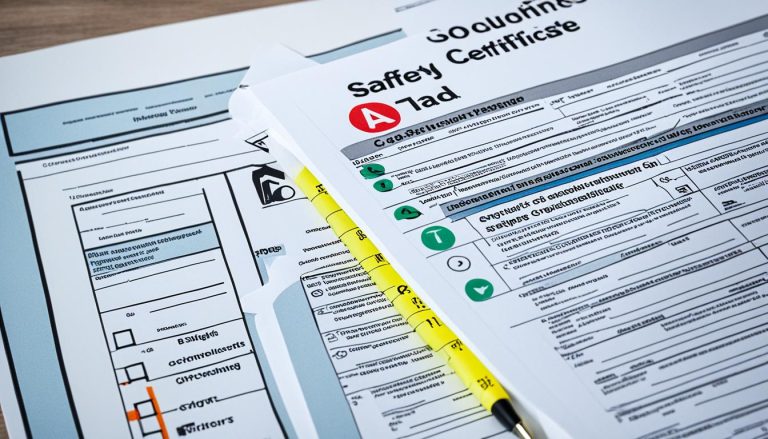Navigating the complexities of property ownership in a relationship can be tricky, especially if your partner owns the house. You might find yourself wondering, “What rights do I have?” The truth is that understanding your rights and responsibilities as a non-owner is crucial for fostering healthy communication and ensuring fair treatment within your partnership.
Whether you’re married or simply living together, knowing where you stand legally can help protect both your interests and your relationship.
In this article, we’ll unravel the intricacies of property ownership dynamics so you can feel empowered and informed about your situation. Let’s dive into what it means when “my partner owns the house” and explore how to secure your place in this shared space!
What is the Property Ownership in a Relationship?
Property ownership in a relationship often leads to questions about rights and responsibilities. It’s essential to recognize that owning a home is not just about the bricks and mortar; it reflects emotional ties, shared dreams, and sometimes complicated legal matters.
When one partner owns the house, it creates an imbalance of power. This can affect how decisions are made regarding the property. It’s important for both partners to openly discuss their expectations and feelings related to ownership.
Understanding local laws around property rights is vital as they vary by location. Many places have specific regulations governing what happens when relationships change or end.
Being clear on these aspects helps avoid misunderstandings later on. Open dialogue fosters trust and encourages both parties to feel secure in their roles within the relationship, regardless of who holds title to the property.
My Partner Owns the House – What Rights Do I Have?
When your partner owns the home you live in, your rights depend greatly on whether you are married, in a civil partnership, or cohabiting without a legal union. The law treats these situations very differently, and understanding the distinction is vital for knowing where you stand and what protection you may have.
If I am Married Or In A Civil Partnership and my Partner Owns The House, What Rights Do I Have?

Marriage and civil partnership give you stronger legal protections, even if your name is not on the property’s title deeds.
-
Right to Occupy: You have the right to live in the home as your matrimonial or partnership residence. Your partner cannot simply force you to leave.
-
Protection from Eviction: Neither of you can evict the other without obtaining a court order. This ensures that you cannot be left homeless suddenly.
-
Financial Entitlement: In the event of divorce or dissolution, you can claim a share of the property as part of the financial settlement, regardless of whose name is on the deeds.
This means your status as a spouse or civil partner gives you a legal safety net when it comes to housing and property rights.
If I am not Married Or In A Civil Partnership and my Partner Owns The House, What Rights Do I Have?

Cohabiting couples face a very different situation, as the law does not automatically grant you rights in your partner’s property.
-
No Automatic Rights: Even if you have lived together for years or have children, you do not automatically have the right to stay in the home or claim ownership.
-
Beneficial Interest: You may still establish a claim if you can prove you have a financial stake, known as a “beneficial interest.” This could be by:
-
Contributing to the mortgage or purchase price.
-
Paying for significant home improvements.
-
Having a written agreement, such as a Declaration of Trust or cohabitation agreement.
-
-
Licence to Occupy: If your partner has formally granted you permission to live in the property, this may provide some legal standing.
Without these arrangements, your position is far more vulnerable than if you were married.
Practical Steps You Can Take
Regardless of your relationship status, it is sensible to take proactive steps to protect yourself:
| Step | Why It Matters |
|---|---|
| Check property ownership | Search the Land Registry to confirm if your name is on the title deeds. |
| Consider a cohabitation agreement | For unmarried couples, this sets out financial contributions and rights clearly. |
| Seek legal advice | A family law solicitor can help you understand your rights and prepare for different scenarios. |
Why Legal Advice Is Essential?
Property disputes can be highly complex, especially where emotions and relationships are involved. A family law solicitor can assess whether you have grounds to claim a share of the property or remain in the home if your relationship ends. They can also help you draw up agreements that secure your position going forward.
What Rights Do I Have as a Non-Owner?
As a non-owner living in your partner’s home, your rights can feel limited. However, you do have certain protections under the law.
You may be entitled to reasonable access and use of shared spaces. If you’ve contributed financially to household expenses, it could strengthen your claim for some recognition in property discussions.
In many cases, if you’re cohabiting long-term, you might establish what’s known as “common-law” rights. This can offer some security regarding financial contributions or improvements made during the relationship.
If issues arise, consider documenting everything like bills paid or renovations completed, which supports your claims later on if disputes occur.
Open communication with your partner about finances and responsibilities is essential. Having these conversations early can prevent misunderstandings down the road and foster a more equitable arrangement between both of you.
Legal Options for Non-Owner Partners

Non-owner partners have several legal options to consider when it comes to property rights. One primary avenue is seeking a declaration of beneficial interest. This can establish your right to a share in the property based on contributions, whether financial or otherwise.
Another option is pursuing a cohabitation agreement. This document outlines each partner’s rights and responsibilities regarding the home, providing clarity and security for both parties.
If disputes arise, mediation may offer an effective solution. It’s often less stressful than court and allows both partners to negotiate terms amicably.
In cases where negotiations fail, you might need to explore litigation as a last resort. A court can assess your situation and make decisions about equitable interests in the property.
Understanding these options empowers non-owner partners to protect their interests while fostering open communication with their partners.
How to Protect Your Interests in Jointly Owned Property?
Understanding how to protect your interests in jointly owned property is crucial. Begin by documenting everything related to the ownership. This includes agreements, payments made, and any contributions towards improvements or upkeep.
Consider drafting a cohabitation agreement if you haven’t already. This legal document outlines each person’s rights and responsibilities regarding shared assets. It can clarify expectations about finances, maintenance, and what happens if one partner wants to sell.
Stay informed about property laws in your area. They may impact your rights significantly based on whether you are married or just living together.
Communicate openly with your partner about financial decisions concerning the property. Transparency fosters trust and helps avoid misunderstandings that could lead to disputes later on.
Consult a real estate attorney when necessary. They can provide invaluable guidance tailored specifically to your situation and ensure you’re adequately protected legally.
Managing Finances and Responsibilities in a Shared Home

Managing finances in a shared home can be tricky. It’s essential to have open conversations about expenses. Create a budget that includes rent or mortgage, utilities, groceries, and any other costs you share.
Consider setting up a joint account for common bills. This makes tracking expenses easier and promotes transparency. Each partner can contribute their fair share based on income or agreed-upon percentages.
Responsibilities should also be clearly defined. Divide household chores to avoid misunderstandings. Use tools like chore charts or apps to keep things organized.
Regular check-ins help address any issues before they escalate. It’s vital both partners feel heard regarding financial contributions and responsibilities.
Being proactive fosters harmony, reducing stress related to money matters while maintaining your relationship’s stability.
Communication and Negotiation in Property Ownership Disputes
Effective communication is key in property ownership disputes. When emotions run high, it’s easy to misunderstand intentions. Clear dialogue helps both partners express their feelings and concerns.
Listen actively to your partner’s perspective. Validate their feelings, even if you disagree. This fosters a collaborative environment where solutions can emerge.
Negotiation requires flexibility and compromise. Start by identifying common goals, such as ensuring stability or maintaining the relationship itself. Focus on finding win-win scenarios that benefit both parties.
Document any agreements reached during discussions. Having everything laid out prevents confusion later on and strengthens trust between partners.
Remember to approach conversations with respect and patience. The aim isn’t just resolving the issue but also preserving the bond you share while navigating these challenges together.
Conclusion
Understanding these dynamics empowers individuals to take necessary actions regarding their interests while fostering healthier conversations around cohabiting arrangements and shared lives. Knowing where you stand allows for more informed decisions about love and living spaces alike.
FAQs
How can I protect my interests in jointly owned property?
Document all agreements and contributions related to the property. Stay informed about local property laws, communicate openly about financial decisions, and consult a real estate attorney if necessary to ensure you’re legally protected.
Is it important to have a cohabitation agreement if I’m not married?
Yes, a cohabitation agreement can provide clarity about each partner’s rights and responsibilities regarding shared assets. It helps set expectations and can protect both parties in case of disputes.
What happens to the property if we break up?
If your partner solely owns the home, your rights will depend on your contributions and any agreements made during the relationship. You may need to negotiate terms for selling the property or seek legal assistance to resolve ownership disputes.
How can I manage finances effectively in a shared home?
Create an open budget that includes all shared expenses, consider setting up a joint account for common bills, and clearly define individual responsibilities to maintain balance and avoid misunderstandings.
Can emotional ties to the home affect decision-making during a breakup?
Yes, emotional attachments can complicate decisions regarding the property. Acknowledging these feelings and discussing them openly can help facilitate better decision-making and minimize conflict.
How do I know if I have common-law rights in my situation?
Common-law rights may apply if you have cohabited long-term and contributed financially or through improvements. However, these rights can vary by jurisdiction, so understanding local laws is essential for clarity.






